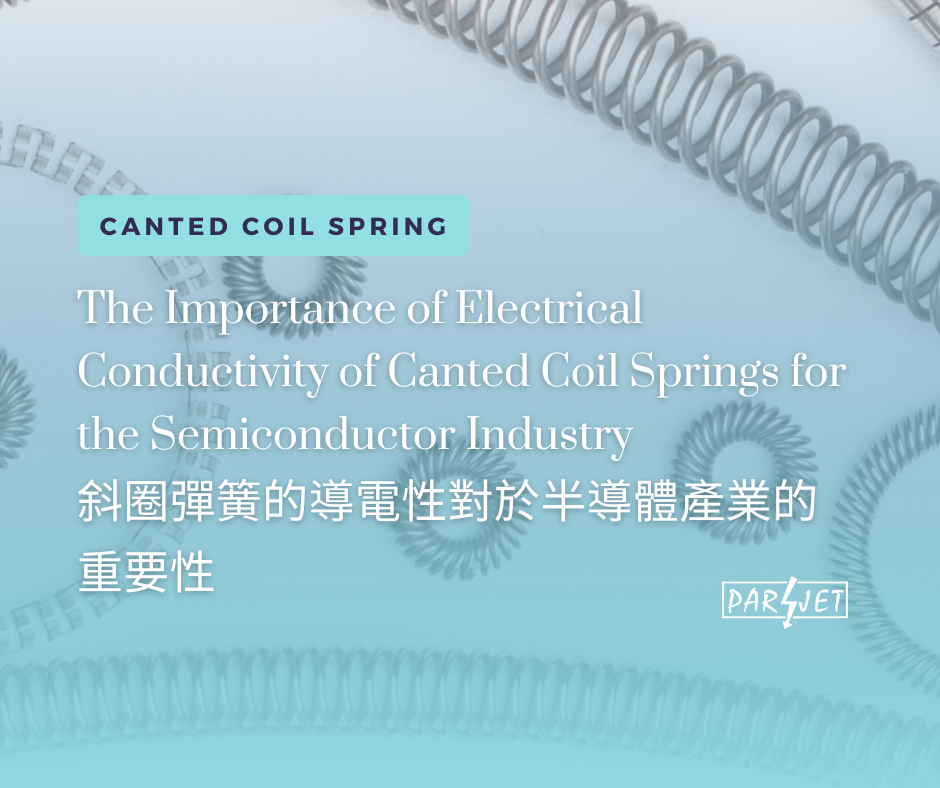
The Importance of Electrical Conductivity of Canted Coil Springs for the Semiconductor Industry
The semiconductor industry is characterized by the need for precision, reliability, and efficiency in both manufacturing processes and final products. Among the many components that play crucial roles in this industry, canted coil springs are particularly significant due to their unique properties. One of the key attributes of these springs is their electrical conductivity, which has profound implications for various applications within the semiconductor sector. This blog explores the importance of the electrical conductivity of canted coil springs and how it benefits the semiconductor industry.
What Are Canted Coil Springs?
Canted coil springs, also known as slanted or wave springs, are precision-engineered components designed with coils that are canted at an angle. This unique design allows them to provide consistent and predictable force in a compact form factor. These springs are often used in applications requiring reliable mechanical and electrical connections.
Electrical Conductivity in Canted Coil Springs
Electrical conductivity in canted coil springs refers to their ability to conduct electrical current efficiently. This property is achieved with conductive materials such as copper alloys, beryllium copper, or stainless steel, often coated with gold or other conductive coatings to enhance performance.
Key Benefits of Electrical Conductivity in the Semiconductor Industry
- Reliable Electrical Connections:
- Consistent Performance: The electrical conductivity of canted coil springs ensures stable and reliable electrical connections, which is critical in semiconductor devices where even minor fluctuations can impact performance.
- Signal Integrity: High conductivity materials help maintain signal integrity by minimizing resistance and reducing signal loss, crucial for high-speed data transmission in semiconductor applications.
- Electromagnetic Shielding:
- EMI/RFI Protection: Canted coil springs with good electrical conductivity can act as effective electromagnetic interference (EMI) and radio-frequency interference (RFI) shields. This is essential for protecting sensitive semiconductor components from external electromagnetic fields.
- Noise Reduction: By providing a conductive path to ground, these springs help reduce electrical noise and improve the overall performance of semiconductor devices.
- Thermal Management:
- Heat Dissipation: Conductive canted coil springs can assist in dissipating heat generated by semiconductor components. Efficient thermal management is crucial to prevent overheating and ensure the longevity and reliability of semiconductor devices.
- Temperature Stability: The ability to conduct heat away from critical areas helps maintain stable operating temperatures, which is vital for the performance and reliability of semiconductor circuits.
- Miniaturization and Compact Design:
- Space Efficiency: The compact design of canted coil springs, combined with their conductive properties, allows for the miniaturization of semiconductor components and devices. This is particularly important in modern electronics where space is at a premium.
- Integrated Solutions: Canted coil springs can serve dual functions as both mechanical connectors and electrical conductors, simplifying design and reducing the number of components needed in semiconductor assemblies.
- Durability and Longevity:
- Corrosion Resistance: Conductive coatings such as gold enhance the corrosion resistance of canted coil springs, ensuring long-term reliability even in harsh environments.
- Consistent Contact Pressure: The unique design of canted coil springs ensures consistent contact pressure over their lifespan, maintaining reliable electrical connections without the risk of loosening or degradation over time.
Applications in the Semiconductor Industry
- • Test and Measurement Equipment: Ensuring accurate and reliable electrical connections for testing semiconductor devices.
- • Chip Packaging: Providing consistent electrical connections in chip carriers and sockets.
- • Board-to-Board Connectors: Facilitating reliable connections between printed circuit boards (PCBs) in semiconductor devices.
- • EMI/RFI Shielding: Protecting sensitive semiconductor components from electromagnetic interference.
Conclusion
The electrical conductivity of canted coil springs is a critical attribute that significantly benefits the semiconductor industry. From ensuring reliable electrical connections and protecting against electromagnetic interference to aiding in thermal management and enabling compact designs, conductive canted coil springs play a vital role in the performance and reliability of semiconductor devices. As the demand for more advanced and miniaturized semiconductor technologies grows, the importance of these conductive springs will only continue to increase, driving innovation and efficiency in the industry.
At Parjet
We provide a wide range of canted coil springs, including spring energizers for seals, mechanical connecting springs, EMI shielding springs and electrical conducting springs. Parjet offers wide variety of materials, such as stainless steel, copper alloy, Hastelloy, Inconel, elgiloy…etc. For more related information and inquiries, please contact us here.





